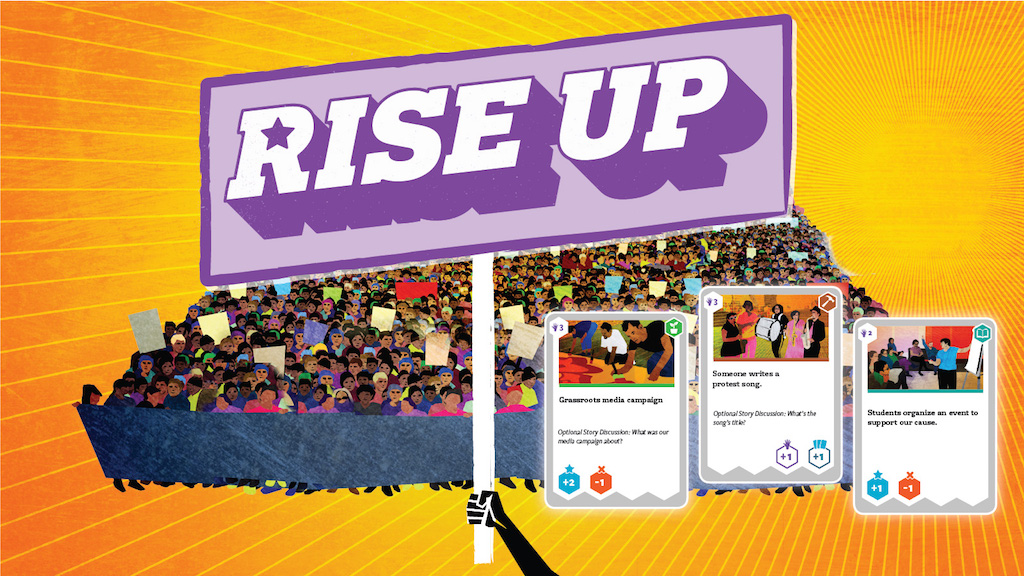Most board games pit players against each other but a new kind of board game seeks to subvert that narrative, requiring players to unite and play against the game itself.
“We are providing an alternative to games like Monopoly and Risk,” Brian Van Slyke told rabble in a Skype interview from Chicago. Van Slyke is one member of a five-person collective, The Toolbox for Education and Social Action (TESA), which launched more than five years ago.
Rise Up is their latest invention.
“There is a pretty cool tradition of left-leaning games and by the way, Monopoly was first created by a left-wing woman who wanted to teach people about the dangers of unbridled capitalism,” he pointed out.
Van Slyke then refers to games such as Suffraghetto, produced in 1909 in Britain and 1978’s Class Struggle.
TESA was responsible for creating Co-opoly: The Game of Cooperatives, which has been played by thousands across North America since its creation a few years ago.
Now, TESA is raising funds for Rise Up on Kickstarter. Although it has reached its goal of US$35,000, its campaign doesn’t wrap up until November 3 and the collective would like to get some more funds to turn out a Spanish version.
“We thought of Rise Up about a year ago because there are so many movements around the world right now: Black Lives Matter, the Fight for 15 or End Deportation,” said Van Slyke. “This game is about activating the imagination of organizers and those who share the same values of social justice but have never had to organize a movement.”
The game, which takes one hour to 90 minutes to finish, has two versions: a simpler one for those unfamiliar with social movements but is perfect for workshops and for kids, and a more complex one, which has more strategies and challenges.
“The idea is to unite and to create a movement and it can be a real one or it can be a fake, fun one like Everyone Gets Ice Cream movement,” explained Van Slyke. “You are all on the same team, you roll the dice and land on a square — that will instruct you to do something or to pick a card.”
Some of the instructions include writing a protest song, organizing a protest march or starting a grassroots media campaign.
“There are 10 places you have to ‘win’ over: campuses, workplaces, neighbourhoods and the like.”

The game is the System
The game itself represents the System working against you and your team.
“You have to build your movement and win more points than the System. Everyone wins together or everyone loses together,” said Van Slyke.
I asked him whether this kind of collaborative style to games was even attractive to those who might be used to triumphing over their opponent — feeding our competitive nature.
“We have run workshops to create the game and you know, we’ve had people who say it was a revelation to them that they liked the game and love working with people to strategize.”
Van Slyke said the game is designed to create tension and to make people impassioned about their next move.
“In the end, we really want it to be a fun game for everyone and not a boring one.”
TESA should be shipping out the game to its 550 backers (and counting) by next April. After that, it can send the game to anyone who orders from its website (priced around US$50).
Notably, the collective has endeavoured to make it one of the most ethically produced board games around: it will be manufactured by a worker-owned collective in California and the materials are ethically and environmentally sourced.
“Not every single part of the supply chain is going to be the ‘most ethical’ because the game will be shipped via sources that use a lot of oil, but we tried our best to make it the most ethically produced game in the market.”
If you’d like to contribute to their crowd-sourcing campaign (until November 3), check out their Kickstarter page.
June Chua is a Berlin-based journalist who regularly writes about the arts for rabble.ca.
Images courtesy of TESA and Molly McLeod.



